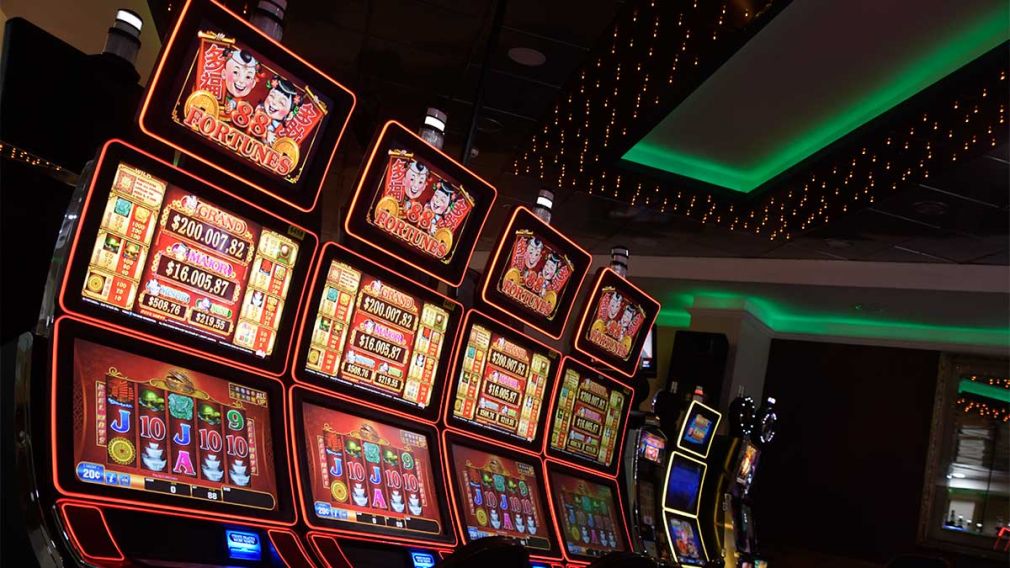When we think of casino activities, the initial pictures that often come to mind are those of rotating roulette devices, poker tokens clattering on felt tables, and dice rolling across a gaming area. While numerous consider these activities as simple pastimes fueled by luck, a deeper exploration reveals a captivating blend of tactics, skill, and community interaction that raises them well beyond simple chance. Regardless of whether you are a experienced player or a curious newcomer, understanding the subtleties of these activities can significantly enhance your experience and understanding.
Gambling activities have evolved over hundreds of years, with different cultures contributing to their rich histories and variations. From the intricate strategies of blackjack to the deception tactics in poker, players engage in a contest of intellect as much as a risk on numbers. This dynamic interplay between luck and expertise creates a exciting atmosphere that draws millions to gambling establishments worldwide. As we delve into the world of table activities, we will uncover the methods that can shift the odds in your advantage and the social elements that make these games a popular choice for leisure and engagement.
A Approach of Table Games
Casino gaming frequently involve a mix of ability and chance, which makes them intriguing for players who enjoy a test. Every title has their own set of rules and strategies that can influence the results. For example, in titles like blackjack, players are required to use tactics like counting cards and understanding the odds to make informed decisions. This skill set can greatly improve the winning potential, differentiating seasoned players from beginners who may depend entirely on chance.
In contrast, games such as the roulette may appear to be entirely based on chance, but strategic thinking can also play into the equation. Participants can select between different betting tactics, such as the Martingale strategy, in which they raise their bets after a loss. This method can establish a more methodical approach to the game. Grasping the probabilities of specific wagers can also help participants make better decisions on the roulette table, showcasing that even games of chance, tactics can enhance the experience.
Additionally, poker stands out as a game that strongly emphasizes strategy. In contrast to most gaming games, the game of poker merges ability, psychology, and luck. Participants must not only concentrate on the cards they are dealt but also consider their opponents behavior and wagering patterns. Mastering concepts like table position, pot odds, and reading bluffing is crucial for success. This complexity of strategy in the game of poker often creates to a more immersive encounter for participants, where the choices and abilities greatly impact the game’s outcome.
Grasping Likelihood and Odds
In the domain of casino games, likelihood and ratios have a critical role in determining a gambler’s possible results. Every game has its own set of rules that define how the chance of succeeding or losing is measured. For case, in matches like 21, players have a chance to modify their odds through tactics, whereas in games like the wheel, the results are purely dictated by chance. Understanding how these probabilities are calculated can substantially affect how a gambler tackles the match. crypto casino’s Nederland
Odds are typically presented in two forms: fractional and numeric. Fractional odds show the proportion of the sum won to the amount staked, whereas numeric odds show the total payout for a successful wager, including the initial bet. For instance, if a game has ratios of 5 to 1, this means that for every one unit bet, a gambler could gain five units if they win. Learning how to interpret these ratios enables players to evaluate their potential winnings and make more educated decisions during gameplay.
Gamblers should also be aware of the casino advantage, which is the casino’s built-in benefit over the players. Each match has a different house edge, and grasping this idea is essential for handling one’s expectations and bankroll. Activities with a lower house edge, such as 21 and chemin de fer, typically offer better odds for players compared to activities like slots and lottery. By understanding the relationship between chance, odds, and the casino advantage, players can improve their gambling experience and strategize more efficiently.
The Exciting Aspect of Table Gaming
Casino games at casinos are often seen as a center of social interaction, bringing players together in a shared experience that extends far beyond the mere act of gambling. The atmosphere at a blackjack table can be vibrant, with players engaging not only with the game itself but also with one another. Laughter, excitement, and, occasionally, playful teasing create connections that enhance the overall enjoyment of the gaming experience. This communal aspect can turn a alone endeavor into a dynamic gathering, making casino games particularly enticing.
One of the intriguing elements of gaming at tables is the way it fosters friendship among players. Whether it’s collaborating to beat the dealer at a craps table or sharing stories between hands in a poker game, the environment encourages communication. Participants often share advice or strategies, creating a sense of togetherness that boosts the fun. This interpersonal atmosphere can make new players feel welcomed and less daunted by the competitive nature of gaming. As the game progresses, friendships may form, leading to a sense of belonging that keeps participants returning to the table.
Moreover, the social aspect of gaming at tables extends outside just the participants. Casino staff play a crucial role in encouraging interaction and maintaining the flow of the game. Their ability to engage players with friendly conversation and their expertise in managing the table can create an inviting atmosphere. This relationship between players and dealers adds another layer of enjoyment, where gamblers feel connected not only to each other but also to the staff. Such interactions are often what make the experience memorable, as players leave with tales to tell and relationships made, reinforcing the notion that table games are truly about more than just chance.

